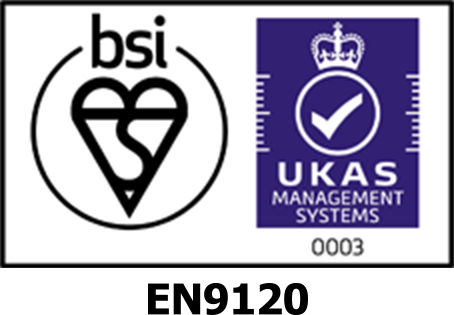Sustainability

EN9120 certification
ITOCHU Metals Corporation has acquired certification for the “EN9120 Quality management systems - Requirements for aviation, space and defense organizations” in the following department.

- What is EN9120?
EN9120 is a quality standard created by the International Aerospace Quality Group (IAQG). It is an international standard that incorporates requirements for quality management systems specific to the aerospace and defense sectors based on the ISO 9001. It incorporates the requirements specific to each stakeholder and applicable laws and regulations into management system quality requirements, and is thus aimed at ensuring the functions, performance, safety, and so on of applicable parts and products.
ISO 14001 certification
ITOCHU Metals Corporation became an ISO 14001 certified company, and as a member of the ITOCHU Group, we are actively involved in environmental management.
- The ITOCHU Group Environmental Policy
Global environmental concerns such as climate change pose a critical threat to the sustainability of earth. Given the global nature of our operations, it is a top management priority for us to address these concerns and contribute to building a sustainable society. We will do so by committing to make continuous improvements to our environmental management system, reducing the environmental impacts of our businesses throughout their lifecycles, and engaging in business activities that make positive contributions to the environment.
1. Compliance with Laws and Regulations
We shall comply with international declarations, agreements, and treaties, as well as with the laws and regulations of the countries and regions in which we operate. We shall also comply with any other agreements that we have consented to.
2. Response to Climate Change
We shall reduce greenhouse gas emissions and increase the efficiency of energy use within our own operations, as well as externally provide products and services that contribute to the mitigation and adaptation to climate change.
3. Environmental Pollution Prevention
We shall prevent and reduce environmental pollution caused by chemical substances and oils, reduce emissions of air pollutants, and reduce and properly process hazardous waste and wastewater.
4. Promotion of Resource Circulation
We shall contribute to the formation of a circular society by promoting the sustainable use of resources (such as fossil fuels, minerals, food, animals and plants), a reduction in the amount of resources used, a reduction in the amount of waste discharged and recycling across our business investments and the supply chain of our products and services.
5. Conservation and Effective Use of Water Resources
We shall reduce water consumption through efficient water use and recycling, as well as take necessary measures to appropriately treat effluents.
6. Biodiversity Conservation
We shall recognize the value of the benefits that we receive from the natural ecosystem, minimize our impact on biodiversity, and contribute to its conservation.
7. Transparency
We shall proactively disclose environmental information and maintain a communicative relationship with our stakeholders.
